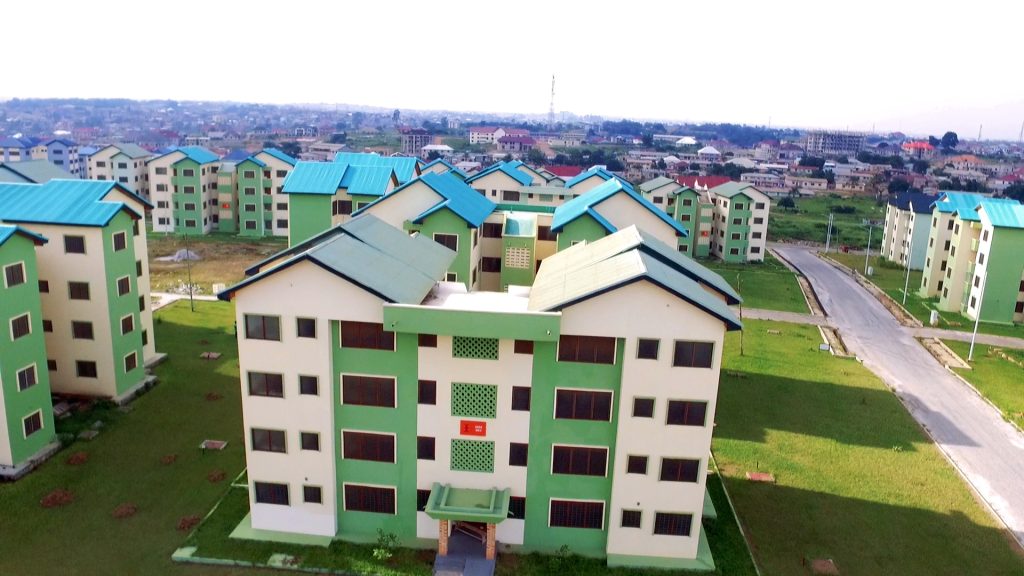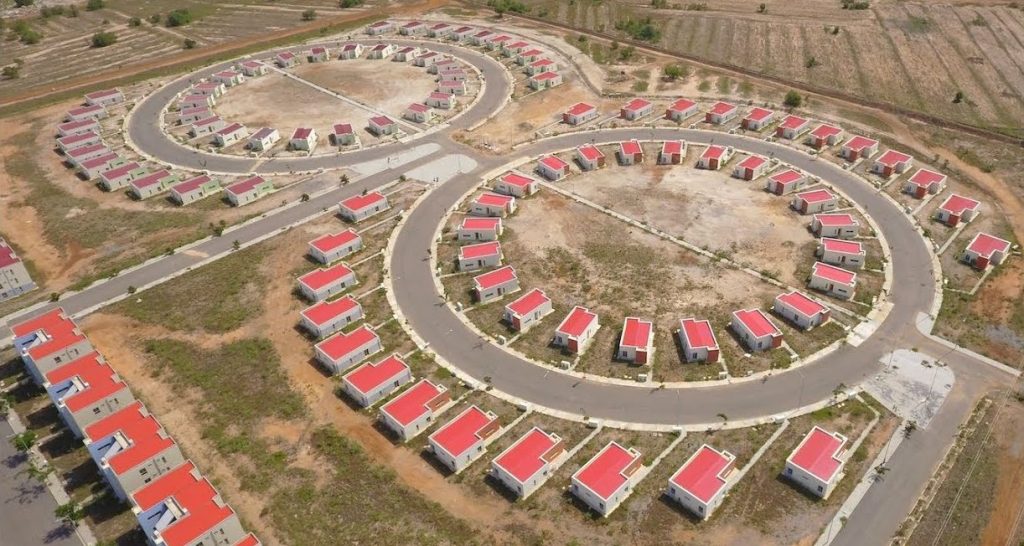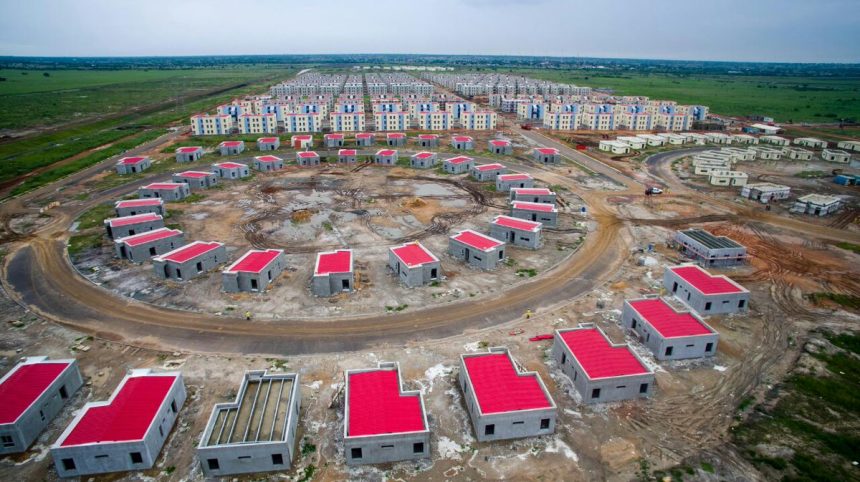Ghana is facing a huge housing deficit, estimated to be around 1.8 to 2 million units, and is expected to increase.
Despite a construction boom in the capital city of Accra, most of the new developments are luxury apartments that are unaffordable for the majority of the population.
Meanwhile, low-income residents struggle to find decent and secure accommodation in the informal sector, where they are often exploited by landlords who demand exorbitant advance rent payments.
Governments over the years have attempted to fix the issue by initiating several affordable housing projects. These projects aim to provide decent and low-cost homes for low and middle-income earners.
But so far, most of the projects have failed.
How Did We Get Here
One of the main reasons for Ghana’s failed affordable housing is the lack of effective policies and interventions from the government.
Since the 1980s, Ghana has adopted a market-based approach to housing, following the recommendations of international organisations such as the World Bank.
The government has privatised public housing, offered tax breaks and incentives for private developers, and sold off state-owned land for urban redevelopment.
However, these policies have not stimulated the supply of affordable housing for low-income households and have rather resulted in a rise of under-occupied luxury real estate that caters to the elite and expatriate market, especially in the city centre.
The government has also failed to effectively regulate the rental sector. In 2020, the government passed an amendment to the Rent Act of 1963 that limits the advance rent deposit to six months.
However, there hasn’t been effective enforcement of this act due to the under-resourcing of Ghana’s Rent Control Board. Many tenants still have to pay up to two years of rent in advance, which puts them under financial stress and limits their mobility and choice.
Government Affordable Housing Projects
Over the years, local governments have attempted to fix the issue of affordable housing in the country. Below is a sample of some of those projects:
Asokore Mampong Affordable Housing Project (2020)

This project is one of the government’s affordable housing projects under the Social Security and National Insurance Trust (SSNIT).
It consists of 91 apartment blocks that contain 1-bedroom, 2-bedroom, and 3-bedroom apartments which are estimated to house over 1000 people. The project is located in Asokore Mampong in the Ashanti region and was completed and renamed after the Asantehene, Otumfuo Osei Tutu II in May 2020.
The prices of the apartments range from GHS 99,000 to GHS 335,000 depending on the size and type.
According to some prospective tenants, the price of housing is a hindrance to their occupancy.
Amasaman Affordable Housing Project (2021)
This project is funded by the United Nations Office for Project Service (UNOPS) as part of its global initiative to build over 850,000 homes across Asia, Africa, and the Caribbean.
The project is expected to produce 6,500 homes at a value of over $100 million in Amasaman, a suburb of Accra. The first phase of the project was to be ready by December 2020.
But the project has been embroiled in controversy when a partner in the project was accused of embezzlement and has reportedly been abandoned.
The financing for a major "affordable housing scheme" launched less than a year ago in Ghana with the support of a UN agency is now kaput after the British partner was accused of embezzling millions of dollars & UN execs were suspended & forced to resign.
— Bright Simons (@BBSimons) May 8, 2022
https://t.co/9nN6I8E6t7
Gbetsile Affordable Housing Project (2021)
This project is a Ghana-China collaboration that aimed to construct 400 affordable housing structures on 43 acres of land in Gbetsile, a growing suburb in the Greater Accra region.
The project will also have both 2-bedroom and 3-bedroom apartments for sale. The project is yet to be completed but was expected to be done within two years of construction.
The project has currently been put on hold.
Saglemi Affordable Housing Project (2012)

This project was said to be one of the largest in Ghana with about 5,000 housing units was to be located in Saglemi, near the Ningo Prampram area.
The project started in August 2012 with a $280 million deal signed by former President Mahama to construct the housing units.
However, the project has been stalled since then due to various issues such as contractual disputes, mismanagement, and corruption allegations.
In essence, the government of Ghana has expended almost $200 million for its affordable housing projects.
Are There Any Solutions?
Most of the issues in regard to affordable housing in Ghana appear to be self-inflicted with the Government of Ghana doing more harm than good.
The solution to fixing this would require a comprehensive and coordinated approach that involves multiple stakeholders and addresses multiple dimensions of the problem.
Some of the possible actions include:
Reforming policies and institutions
The government needs to review and revise its housing policies and strategies to ensure that they are aligned with the needs and realities of low-income households.
It also needs to strengthen its institutions and capacities to implement, monitor and evaluate its interventions.
Improving land administration and management
The government needs to improve its land administration and management systems to ensure that land is available, accessible, affordable, and secure for housing development.
It should also promote alternative land tenure models such as community land trusts, leaseholds, and customary tenure.
In in all, the government has a key role to play in providing the policy framework, institutional support, resource mobilisation, and leadership for affordable housing provision.
At this point, a lot of damage has been done, and if efforts aren’t quickly mobilized, the concept of affordable housing will be more of a myth than a reality in Ghana.
Catch up on news and other tidbits on our WhatsApp Community Page, Twitter/X, and subscribe to our weekly newsletter to ensure you don’t miss out on any news.










